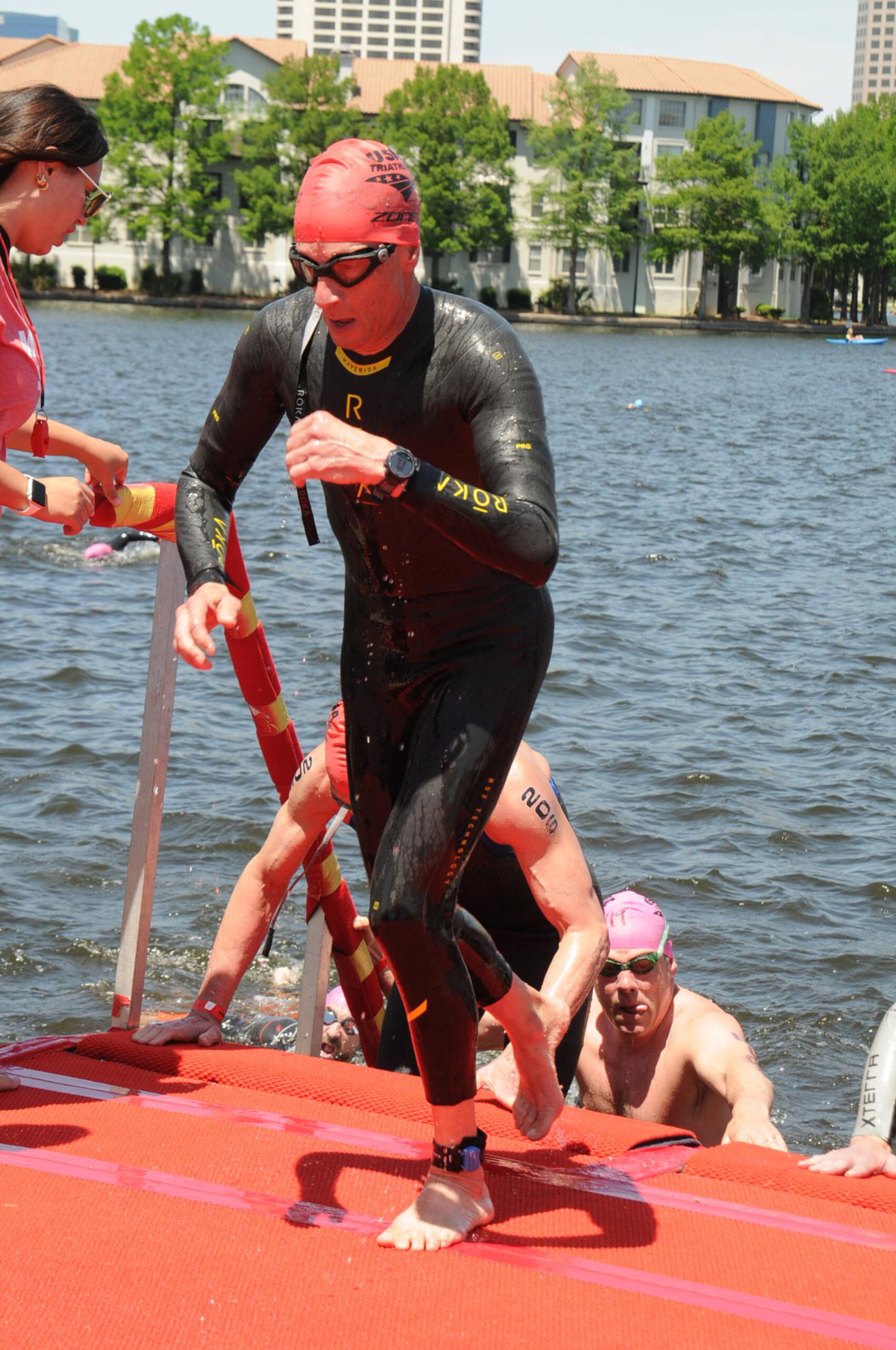We triathletes are deep into the 2023 race season with many big races approaching rapidly. For me, those include the World Sprint Championships in Germany in a few weeks, the USAT National Championships in Milwaukee in August, and the World Standard-distance  Championships in Spain in September. For long-course triathletes, it might be the World Ironman or 70.3 Championships in the fall. For still others, you have your own “A” races on your schedule. You’ve been aiming for these big races all season, working hard in training, and doing your best in “B” races. Hopefully, you feel you’re ready to swim, bike, and run as fast as you can on race day.
Championships in Spain in September. For long-course triathletes, it might be the World Ironman or 70.3 Championships in the fall. For still others, you have your own “A” races on your schedule. You’ve been aiming for these big races all season, working hard in training, and doing your best in “B” races. Hopefully, you feel you’re ready to swim, bike, and run as fast as you can on race day.
Getting to your “A” races healthy and fit is an accomplishment in itself, but I’m sure you want to swim, bike, and run your be
st in the “Big One!” Whether you succeed or fail to achieve your goals at these all-important races ultimately depends on what happens between your ears as these events near. Approaching these races with the right attitude is your key to performing your best on race day. The problem is that important races can play mind games with your head.
There are two schools of thought on how to prepare for a big race. One approach is to try to ignore the fact that it’s a big race and simply say,  “It’s no big deal so there’s nothing to get worked up about.” In big events, such as national or world championships, some triathletes I know won’t tell people about it and not share news on their social media to minimize feeling expectations and pressure from others. They want to treat their “A” races just like another race and to avoid the hype surrounding this event.
“It’s no big deal so there’s nothing to get worked up about.” In big events, such as national or world championships, some triathletes I know won’t tell people about it and not share news on their social media to minimize feeling expectations and pressure from others. They want to treat their “A” races just like another race and to avoid the hype surrounding this event.
The risk of this approach is that big races are hard to ignore even if you don’t talk about them. Whether you like it or not, it’s a BIG race. By ignoring the reality of the situation, you may not prepare yourself psychologically and emotionally for the magnitude of the event that may hit you sooner or later, whether in the days leading up to the race or when you arrive at the race venue where its significance can’t be ignored.
psychologically and emotionally for the magnitude of the event that may hit you sooner or later, whether in the days leading up to the race or when you arrive at the race venue where its significance can’t be ignored.
The other school of thought argues that big events can’t be avoided, ignored, or downplayed. Rather, triathletes must face the reality of these  races and do what they can to respond positively to the unavoidable expectations and pressures. This approach has you say, “This race is a big deal, so let’s figure out how to deal with it positively.” You must establish an attitude that will enable you to achieve your goals (“I am going to believe in myself, stay grounded, and focus on what I need to do to perform my best.”). This attitude helps you deflect the self-imposed and external pressures and enables you to maintain a positive and healthy perspective and focus as you approach the big races. The risk of this approach is that,
races and do what they can to respond positively to the unavoidable expectations and pressures. This approach has you say, “This race is a big deal, so let’s figure out how to deal with it positively.” You must establish an attitude that will enable you to achieve your goals (“I am going to believe in myself, stay grounded, and focus on what I need to do to perform my best.”). This attitude helps you deflect the self-imposed and external pressures and enables you to maintain a positive and healthy perspective and focus as you approach the big races. The risk of this approach is that, despite your best efforts, you won’t be able to deflect the expectations and pressure. Instead of inoculating yourself against the pressure, you actually succumb to it.
despite your best efforts, you won’t be able to deflect the expectations and pressure. Instead of inoculating yourself against the pressure, you actually succumb to it.
With either approach, you need to figure out what you need to do to be totally prepared to swim, bike, and run your fastest on race day (e.g., physical and mental preparation, course familiarization, being organized, who you hang out with). You also should recognize what and who might interfere with your preparations (e.g., overly intense teammates, too much time with family and  friends). Finally, you must take deliberate steps to ensure that you maintain a healthy attitude and do the things that you have learned will lead you to success.
friends). Finally, you must take deliberate steps to ensure that you maintain a healthy attitude and do the things that you have learned will lead you to success.
What we can learn from this is that there is no single approach that works for every triathlete. You must look at how you have handled big races in the past. If you performed well using one approach, then stick with it (“If it ain’t broke, don’t fix it!”). But if it didn’t work before, don’t expect it to work next time. In this case, you will want to do something different. Regardless of the approach you take, the goal is to enter your “A” races feeling motivated, confident, relaxed, and focused. If you feel that way, you have a better chance of performing your best and achieving the goals you have set for yourself, while also enjoying the overall race experience and having fun from start to finish.
performing your best and achieving the goals you have set for yourself, while also enjoying the overall race experience and having fun from start to finish.
In my next article, I’ll share some specific mindsets you can adopt to make having a healthy attitude toward your “A” races easier to embrace.









